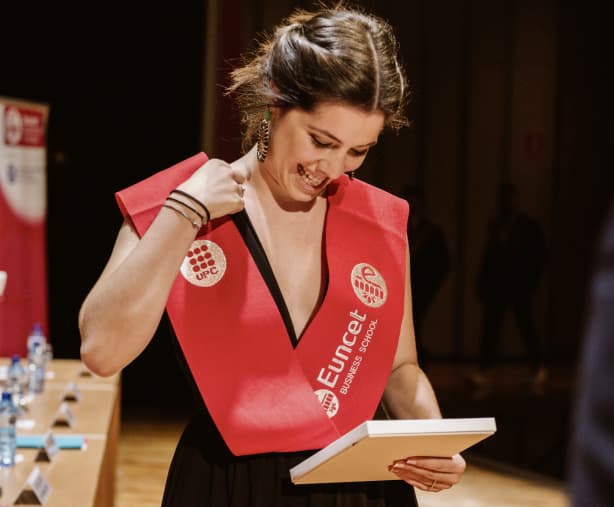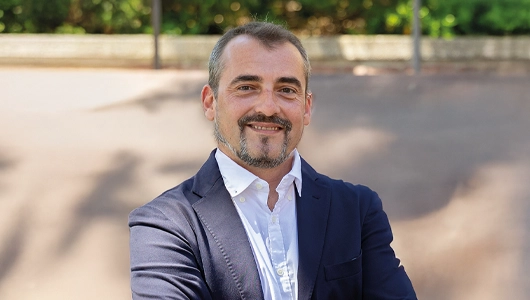Postgraduate in Project Management

Francesc Baza
Postgraduate Program in Project Management
"I have improved in decision making in my perimeter of responsibility and thanks to the tools, methodologies and techniques learned I have been able to organize, plan and control the corporate projects in which I am involved."

Sebas Plaza
Postgraduate Program in Project Management
"I have been working in the field of project management for many years, but this postgraduate course has allowed me to consolidate my knowledge. I have acquired methodologies that make me more agile and I can tell the difference in my workplace. I now manage teams more effectively and meet objectives within the established deadlines with greater precision."
Why study a Postgraduate in Project Management at Euncet?
The Postgraduate Degree in Project Management from Euncet Business School is designed to offer comprehensive, practical and up-to-date training that will allow you to stand out in the field of project management. These are the main reasons to choose this program:

OVERVIEW OF PROJECT MANAGEMENT
You will gain a comprehensive perspective on strategic project management—from goal-oriented planning to resource optimization, process control, and effective results communication. This training is designed to help you master every phase of the project life cycle.

MULTIDISCIPLINARY AND TRANSVERSAL PROJECTS
You will learn how to design, implement, and lead projects across various sectors, applying an integrated and cross-functional approach. The program will prepare you to make decisions in dynamic, high-uncertainty environments—essential for today’s market challenges.


AGILE PROJECT MANAGEMENT
You will apply appropriate methods, techniques, and tools to manage high-quality projects, such as Agile, Canvas, and Scrum, among others. You will work with a range of project management tools, both general and sector-specific, tailored to different fields of application.


PREPARATION FOR PMP CERTIFICATION
The program includes specific training aimed at obtaining the PMP (Project Management Professional) certification from PMI. This certification is one of the most internationally recognized credentials in project management and will open new global career opportunities for you.


PRESTIGIOUS PROFESSORS
Teachers with a recognized academic and professional career, linked to the business world and with prestigious university degrees.


EUNCET EXPERTISE
40 years training professionals and managers in management, innovation and new technologies.
Executive practical information
Other Euncet Postgraduate Courses
Frequently Asked Questions
Postgraduate in Project Management
The Postgraduate Program in Project Management is designed for professionals who wish to lead strategic projects across various sectors and develop advanced skills in managing teams, resources, and outcomes. It is ideal for both technical and managerial profiles seeking to take the next step in their careers.
You will acquire the knowledge and skills necessary to efficiently plan, execute, and control projects. You will work with recognized methodologies such as Agile, Scrum, and Canvas, optimizing both resources and results. Additionally, you will be trained to successfully face the PMI's PMP certification.
It is not mandatory, but highly recommended. The program is designed so that you can make the most of the content if you already have professional experience or basic knowledge in business management or project-based work. In any case, you will receive the necessary support to progress confidently.
The postgraduate course combines theory with real practices, case studies, workshops and advanced project management tools.
- Lead and coordinate strategic projects, ensuring their execution on time, within scope, and on budget.
- Implement professional management methodologies (such as Agile, Scrum, and PMP®) and specialized digital tools.
- Manage multidisciplinary teams, facilitating collaboration and alignment with project objectives.
- Control risks, identify business opportunities, and make data-driven decisions.
- Apply tools such as Gantt charts, control indicators, and monitoring methods to optimize each phase of the project.
- Understand the internal workings of organizations, contributing value to transformation and continuous process improvement.

Georgina Navarro
Executive Education Advisor






